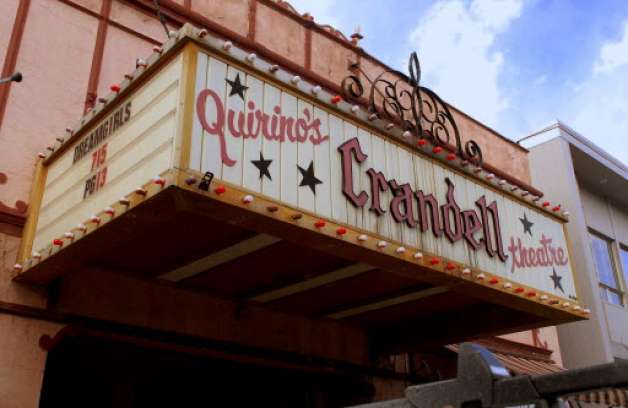by Chris Churchill, Times Union
CHATHAM — It sounds like an intriguing movie plot: Raise at least $100,000 — or die.
But for many smaller movie theaters across upstate New York, that’s not a fictional drama. It’s a terrifying documentary.
See, the movie world is at the cusp of a major shift. Studios, looking to save money, are going digital and will no longer release films on, well, film. The old-fashioned movie projector is going the way of the record player, or the eight track, or the (insert your favorite outdated technology here).
Progress is progress, I guess. And as a newspaper employee, I can say with certainty that the movie business is hardly the first industry scrambled by the digital revolution.
But for small theaters, often barely profitable, the price of progress can be staggering. The Crandell Theatre in Chatham, for example, estimates it needs $250,000 to make a transition that requires a $100,000 digital projector plus a new movie screen, sound system and projection booth.
“It puts us in a very difficult financial situation,” says Sandi Knakal, president of the Chatham Film Club, which bought the single-screen theater in 2010.
Others theaters owners expect total upgrade costs of about $100,000, but some are already deciding that digital projection is too big a hurdle. Up in Warren County, for example, the owner of the seasonal Carol Theater in Chestertown says the moviehouse will not open this year, making it one of hundreds of cinemas nationally that will not survive the change.
“My heart is in the theater,” says Nanci Hayes. “But there is no way I could step out and buy that kind of projector.”
Not surprisingly, many operators of small theaters or drive-ins are angry at Hollywood studios for pushing such an expensive and dramatic shift. They see it as another example of an industry that disrespects independent cinemas in favor of multiplexes that can more easily afford change.
In fact, although industry observers assume 35-millimeter film reels will be entirely replaced with digital technology by year’s end, many movie studios haven’t even specified when, precisely, they’ll implement the switch. They’re keeping theater owners guessing.
“They hold all the cards,” Knakal says. “They set the tune, and we do the dance.”
So here’s a question: Should we care about theaters like the Crandell? In an age when we can stream movies to TVs, does it even matter if they close?
I think it does. And that’s not just sentimentality.
For many small towns, theater survival is an economic issue. I mean, there’s a reason nearly every good mall or downtown has a movie theater. And just consider what Delaware Avenue in Albany would be without the Spectrum. (The Spectrum, by the way, has already made the digital switch, as has the Scotia Cinema.)
Movie theaters lure folks who might otherwise avoid an area. And moviegoers often shop and eat before the show.
“The health of the local movie theater is often vital to the health of the town,” says Kate Fish, executive director of the Adirondack North Country Association, a rural economic development group in Saranac Lake. “They are, in many cases, the heart of the community.”
ANCA considers cinemas so important, in fact, that the non-profit is about to launch a fundraising campaign to save 10 small North Country theaters. The group also hopes state government will step in to provide low-interest loans to help theaters make the switch.
In Chatham, supporters of the Crandell, which last year drew 33,000 moviegoers to Main Street, began raising money for the digital transition last fall. The effort continues, helped by a $100,000 matching grant from the Ellsworth Kelly Foundation.
Knakal hopes for a successful campaign, of course, though she concedes the Crandell would prefer to be raising money for other needed improvements. But Knakal has a worry.
While the old-fashioned movie projector stayed essentially the same for generations, that’s rarely the case for digital products. Modern technology changes fast — as anyone with an outdated laptop or smartphone well knows.
So, Knakal asked, what’s to stop Hollywood studios from changing digital projection in ways that would force smaller theaters to endure additional upgrade costs?
To put it in movie terms, what if “Digital Switch,” the terrifying documentary, is followed by “Digital Switch 2”?
That’s a sequel that no theater owner wants to see.
Advocate@timesunion.com • 518-454-5700 • @chris_churchill


